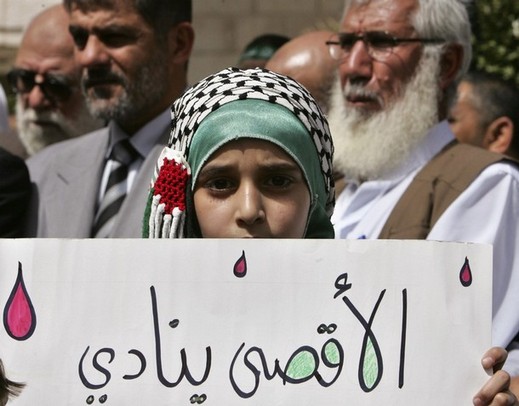Wrapped in red tape
Nightmarish journey leaves professor without visa
Julian Emerson
Leader-Telegram Staff
Mohamed Riffi’s roller coaster ride seemingly has come to an abrupt, sad end.
And it seems nothing more than a violation of nonsensical rules and the fact that Riffi is Palestinian are to blame.
Riffi, a mild-mannered math professor from Gaza, Palestine, came to this country to learn how technology was used to teach math to college students. He arrived in Eau Claire in November and taught math at UW-Eau Claire.
He was enamored with the freedoms and possibilities available in the United States and worked diligently to become a Fulbright Scholar and obtain a travel visa.
But his optimism and hope about this country evaporated during several hours on April 20 he calls “the most harrowing experience of my life.”
Afraid for his life
Riffi wasn’t a newcomer to the United States. He studied here in the 1980s and ’90s and received advanced math degrees at Ohio University in Athens, Ohio, and Northwestern University in Evanston, Ill. Afterward he returned to his native Palestine, but decided to come back last year to work on research.
“I saw it as a great opportunity,” he said during a series of e-mail interviews from Gaza.
But that opportunity turned nightmarish for Riffi in April after a two-week visit with his wife and children in Palestine. On April 20 he arrived at Atlanta International Airport, tired and looking forward to the final leg of his journey to the Twin Cities and then Eau Claire.
Instead, Immigration and Naturalization Services officials placed Riffi in a spartan jail cell with other detainees.
Riffi was locked in the squalid cell for three hours. He wasn’t allowed to drink water, and the only place to go to the bathroom was a rudimentary toilet with no privacy.
INS officers interrogated Riffi. He said they jeered him and threatened to keep him locked up for a month. Having heard stories of people of Middle Eastern descent being detained by the INS despite not having broken the law, Riffi was terrified.
“For a while I thought they were going to kill me,” he said.
Desperate, Riffi told INS officers he was willing to return to Gaza as soon as possible without further complaint. He said he was forced to sign a form saying he was leaving the country willingly, then placed on a flight to Paris.
Once there, he struggled to convince French authorities to allow him to fly to Cairo because officials were suspicious of why he was deported from the United States. He faced similar difficulties at checkpoints in Cairo and Israel before finally arriving home after 80 hours without sleep.
Mix-up costly
Riffi’s forced return to his native country easily could have been avoided.
According to Riffi and Karl Markgraf, UW-Eau Claire International Education Center director who assisted Riffi in attempting to re-obtain his visa, INS officials revoked Riffi’s visa because he violated immigration regulations by not flying directly from the Twin Cities on his way home in early April.
Instead, he flew from the Twin Cities to Cincinnati, where he picked up another flight to Europe. Riffi said he checked with Fulbright officials and was told flying from Cincinnati would not jeopardize the status of his visa.
“It is absolutely their mistake,” he said.
Fulbright program officials were not available for comment.
In the weeks after his detention and forced return home, Riffi was extremely upset at the way he’d been treated by the INS and had no desire to return to this country.
“I hate the way the INS staff was dealing with me. I hate their brutality and atrocity,” he said at the time.
However, he subsequently decided he did want to return, and Markgraf enlisted the assistance of U.S. Rep. Ron Kind, D-La Crosse, U.S. Sen. Russ Feingold, D-Wis., and others to re-obtain Riffi’s travel visa.
Those efforts appeared hopeful at first. But a recent Israeli exclusion policy regarding Palestinians meant Riffi was unable to access needed services at the U.S. Embassy in Tel Aviv.
Riffi then decided to travel to Cairo to reinstate his visa but was discouraged by the U.S. State Department from doing so because of risks he could be deported or detained there, effectively ending his attempt to return to this country.
“They told me the climate for international visitors to the U.S.A. is not suitable at this time,” he said.
Riffi is frustrated his access to the United States has been denied, and he remains angry at his treatment by the INS.
Despite that, he’s hopeful he’ll one day return to America. His two sons are U.S. citizens because they were born in this country while Riffi lived in Chicago, a fact that should help Riffi one day regain his visa.
“I like the American lifestyle. I would love to return to Eau Claire,” he said. “I just hope I don’t have to wait too long.”
Emerson can be reached at 830-5911, (800) 236-7077 or julian.emerson@ecpc.com.













 رد مع اقتباس
رد مع اقتباس


المفضلات